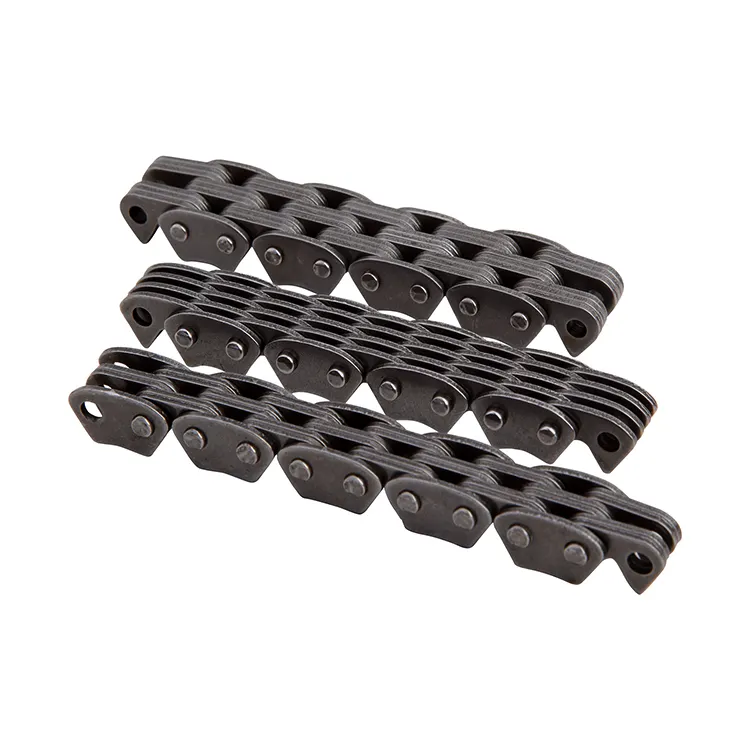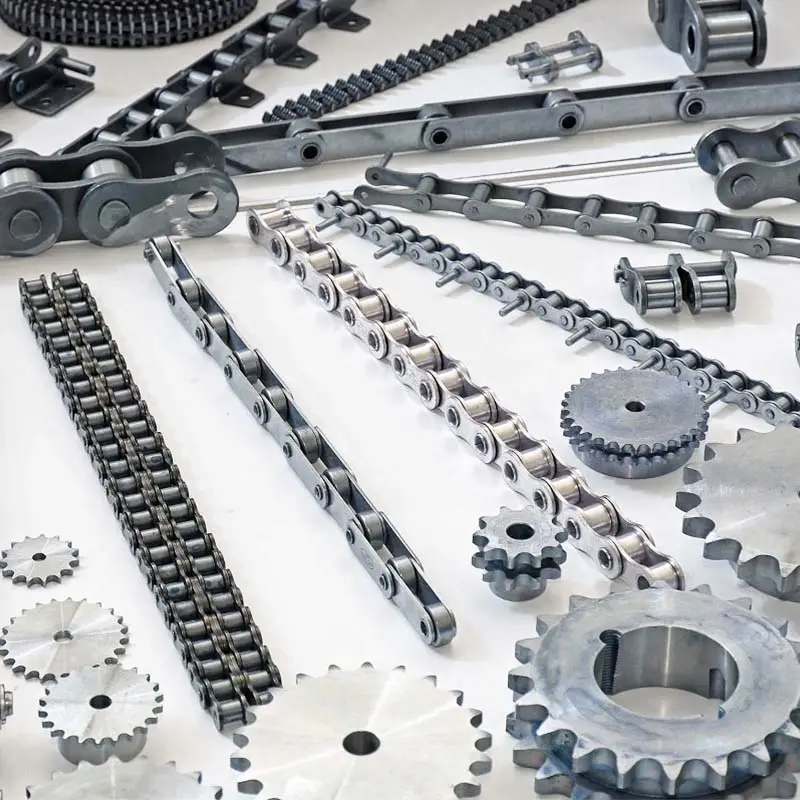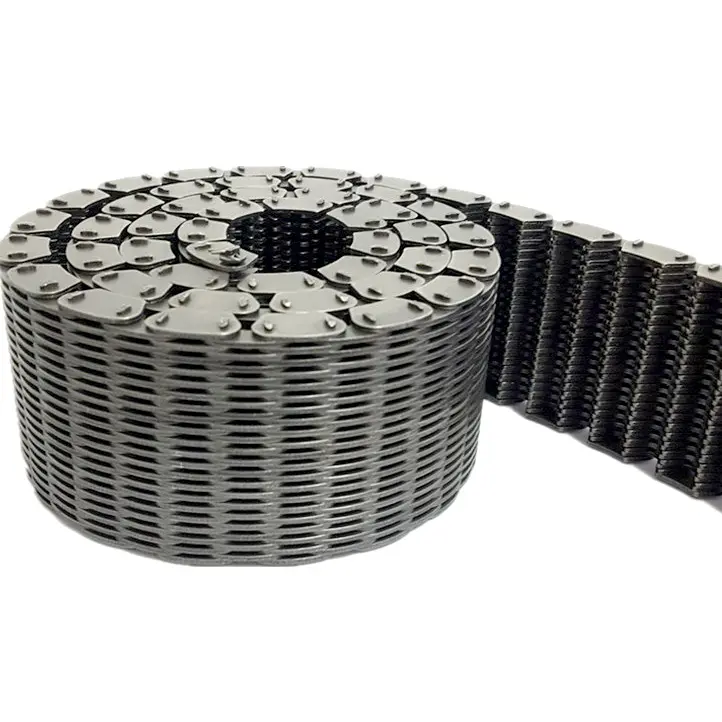Product Description
Product Description
Hollow Pin Conveyor Chains (MC Series)
Chain No.: MC28, MC56, MC112, MC224
Pitch: 63.0 to 160.0 mm
For Free Samples
Prompt Delivery
Green Product
International Approvals
Experienced Staff
Detailed Photos
Product Parameters
We look CHINAMFG to receiving your enquires soon.
Conveyor chain is used for conveyor products from 1 place to another place e. X for the lumber, we supply good quality Conveyor chain, such as: 81X, 81XH, 81XHH, 81XHS, 500R and so on, if you have special demand we also could develop it for you.
Our Advantages
Why choose us?
1. HangZhou CHINAMFG Chain Group Co., Ltd established in 1991, we have 5 subsidiaries in China and also have 6 subsidiaries abroad;
2. We covering a production area of 200, 100 square meters, have more than 1, 800 sets of advanced equipment and over 3, 100 highly skilled employees, the annual production capacity has exceeded 20, 000, 000 meters;
3. We specialized in producing all kinds of standard chains and special chains, such as A or B series chains, driving chains, conveyor chains, dragging chains, agricultural chains and so on;
4. We have obtained ISO9001, ISO14001, ISO16969, AAA and API certificates.
The company is specialized in producing all kinds of standard chains and special chains, E. G. A or B series chains, automobile chains, stainless steel chains, combine harvester chains, heavy-duty cranked link transmission chains, stereo garage chains and maintenance-free chains etc. In recent years, it invests the capital and depends on the improvement of technology to accelerate the step of new product development and the step of technology reform. It intends to produce high strength and precision chains in order to meet requirements of the domestic and overseas markets. We have enclosed our catalog, which introduces our company in detail and covers the main products we supply at present. You may also visit our online company introduction at which includes our latest product line.
Should any of these items be of interest to you, please let us know. We will be happy to give you a quotation CHINAMFG receipt of your detailed requirements.
| Usage: | Transmission Chain |
|---|---|
| Material: | Stainless steel |
| Surface Treatment: | Shot Peening |
| Feature: | Heat Resistant |
| Chain Size: | We Can Produce According to Your Requirements |
| Structure: | All Kinds of You Required |

How do you prevent corrosion in industrial chains?
Preventing corrosion in industrial chains is essential to ensure their longevity and performance. Here are several measures that can be taken to prevent corrosion:
1. Material selection: Choose corrosion-resistant materials for the chain components. Stainless steel, specifically austenitic stainless steel grades, is highly resistant to corrosion and is commonly used in corrosive environments.
2. Coatings and surface treatments: Apply protective coatings or surface treatments to the chain components. These coatings can include zinc plating, galvanizing, chrome plating, or specialized corrosion-resistant coatings. These coatings create a barrier between the chain and the corrosive environment, preventing direct contact and inhibiting corrosion.
3. Lubrication: Proper lubrication is crucial in preventing corrosion. Lubricants create a protective film on the chain surface, reducing friction and preventing moisture and contaminants from reaching the metal. Use lubricants specifically designed for corrosion protection.
4. Regular cleaning and maintenance: Regularly clean and inspect the chains to remove any accumulated dirt, debris, or corrosive substances. Use appropriate cleaning agents and methods recommended for the specific chain material.
5. Environmental control: Control the environmental conditions to minimize exposure to corrosive elements. This can include implementing proper ventilation, reducing humidity levels, or installing protective barriers to shield the chains from direct contact with corrosive substances.
6. Proper storage: Store the chains in a clean, dry, and well-ventilated area to prevent exposure to moisture and corrosive agents. Use appropriate storage methods such as hanging or storing in containers to avoid contact with the ground or other potentially corrosive surfaces.
7. Regular inspections: Conduct regular inspections of the chains to detect any signs of corrosion or damage early. This allows for timely maintenance or replacement before the corrosion progresses and affects the chain’s performance.
8. Follow manufacturer’s guidelines: Always follow the manufacturer’s guidelines and recommendations for the specific chain type and application. They may provide additional instructions on preventing corrosion and maintaining the chain’s integrity.
By implementing these preventive measures, you can significantly reduce the risk of corrosion in industrial chains and ensure their long-term reliability and performance.

How does an industrial chain compare to other types of power transmission systems?
An industrial chain is a type of power transmission system that offers several advantages compared to other systems:
- Strength and durability: Industrial chains are designed to handle heavy loads and withstand tough operating conditions. They are known for their high strength and durability, making them suitable for demanding industrial applications.
- Efficiency: Industrial chains provide efficient power transmission, minimizing energy loss during operation. They offer high mechanical efficiency, which is especially important in applications that require precise and consistent power transfer.
- Flexibility: Industrial chains are flexible in terms of design and configuration. They can be easily adapted to various applications and can transmit power over long distances, making them suitable for a wide range of industrial machinery and equipment.
- Cost-effectiveness: Industrial chains are often cost-effective compared to alternative power transmission systems. They are relatively simple in design, easy to manufacture, and have a lower initial cost. Additionally, their durability and longevity reduce the need for frequent replacements, resulting in long-term cost savings.
- Reliability: Industrial chains are known for their reliability and consistent performance. When properly maintained and operated within their load and speed limits, they can provide reliable power transmission for extended periods.
- Versatility: Industrial chains can accommodate various environmental conditions, including high temperatures, corrosive environments, and high-speed applications. They can be made from different materials and configured with specific features to suit specific application requirements.
While industrial chains offer numerous advantages, it is essential to consider specific application needs and requirements when selecting a power transmission system. Factors such as load capacity, operating environment, speed, and precision may influence the suitability of an industrial chain compared to alternatives such as belts, gears, or shafts.

How can you prevent industrial chain failures?
Preventing industrial chain failures requires proactive maintenance and proper care. Here are some key steps to prevent chain failures:
- Regular Inspection: Conduct regular inspections of the chain, sprockets, and other components to identify signs of wear, damage, or misalignment. Inspect for proper lubrication and tension as well.
- Lubrication: Ensure proper lubrication of the chain to reduce friction, wear, and corrosion. Use the recommended lubricant and follow the manufacturer’s guidelines for lubrication intervals.
- Tension Adjustment: Maintain proper chain tension to prevent excessive slack or tightness. Improper tension can cause accelerated wear and premature failure. Refer to the manufacturer’s specifications for correct tensioning procedures.
- Sprocket Alignment: Ensure proper alignment of the sprockets to prevent excessive wear on the chain. Misalignment can lead to uneven loading and premature failure. Align sprockets according to the manufacturer’s recommendations.
- Replacement of Worn Components: Monitor the chain for signs of wear and replace worn components, such as chains, sprockets, and bearings, promptly. Continuing to operate with worn components can lead to chain failure and potential damage to the machinery.
- Proper Storage: Store spare chains and components in a clean and dry environment to prevent corrosion and damage. Protect them from exposure to moisture, chemicals, and contaminants.
- Training and Education: Ensure that operators and maintenance personnel are trained in proper chain handling, installation, and maintenance techniques. Knowledgeable personnel can identify potential issues and take appropriate preventive measures.
By following these preventive measures, the risk of industrial chain failures can be significantly reduced. Regular maintenance, proper lubrication, and timely replacement of worn components are critical for ensuring the reliable operation and longevity of the industrial chain.


editor by CX 2023-11-02